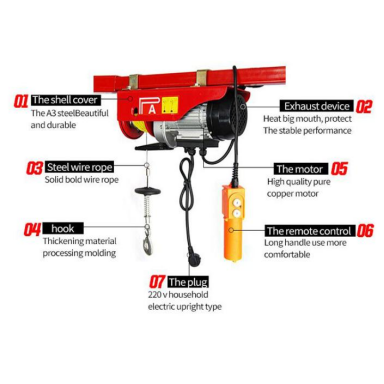


Understanding Crane Scales A Comprehensive Overview of 1-Ton Models
In the world of industrial lifting and weighing, crane scales have become an indispensable tool for various applications. A crane scale is a device used to measure the weight of loads suspended from a crane or hoist. This article will delve into the specifics of 1-ton crane scales, exploring their functionality, applications, advantages, and key considerations for users.
What is a Crane Scale?
A crane scale is essentially a load sensor that is suspended from a hook. The load to be weighed hangs from this hook, allowing the scale to determine its weight based on the force exerted by the load due to gravity. These scales come in various capacities, including the popular 1-ton models, which can handle weights up to 2,000 pounds (or approximately 900 kilograms).
How Does a 1-Ton Crane Scale Work?
The operation of a 1-ton crane scale is based on principles of physics, specifically the relationship between mass and gravitational force. When a load is lifted, the force it exerts is transmitted to the load cell inside the scale. The load cell converts this force into an electrical signal, which is then processed and displayed on a digital readout. Most modern crane scales offer features like zeroing, tare weight, and hold functions, making them user-friendly and versatile.
Applications of 1-Ton Crane Scales
1-ton crane scales are widely used in various industries, including construction, shipping, manufacturing, and logistics. They are particularly beneficial in
1. Construction Sites During the lifting of building materials, accurately weighing loads prevents overloading. This not only enhances safety but also improves efficiency on site.
2. Shipping and Logistics Shipping companies use crane scales to determine the weight of cargo before loading it into containers. This is crucial for compliance with transportation regulations and ensuring safe shipping.
3. Manufacturing In manufacturing processes, knowing the precise weight of components can be vital for quality control. Crane scales help manufacturers maintain consistency in production.
4. Farming and Agriculture Farmers use crane scales to weigh large bales of hay, livestock, or other substantial loads, optimizing their logistics and inventory management.
Advantages of Using a 1-Ton Crane Scale

1-ton crane scales offer several benefits
- Precision These scales provide accurate readings, which are essential for compliance with safety regulations, especially in industries where weight limits are critical.
- Portability Many 1-ton crane scales are lightweight and portable, allowing them to be used in various locations without the need for permanent installations.
- Durability Built to withstand tough industrial environments, these scales are often made from robust materials that can resist damage from dust, moisture, and heavy use.
- Ease of Use With digital displays and intuitive controls, crane scales are generally easy to operate. Many models also include wireless functionality, allowing operators to read weights from a distance.
Considerations When Choosing a 1-Ton Crane Scale
When selecting a 1-ton crane scale, there are several factors to consider
1. Capacity Ensure that the scale can handle the weight limits of the loads you plan to weigh. A 1-ton scale should suffice for most general applications, but confirm it meets your specific needs.
2. Calibration Regular calibration is essential for maintaining accuracy. Some models offer self-calibration features, while others may require manual adjustments.
3. Power Supply Consider whether you prefer a battery-operated model for portability or a plug-in version for constant use.
4. Additional Features Look for scales with features that enhance functionality, such as wireless connectivity, memory functions, and temperature stability.
Conclusion
A 1-ton crane scale is a valuable asset in various industrial settings, providing accurate and reliable weight measurements for loads. By understanding how these scales operate, their applications, and their advantages, businesses can enhance safety and efficiency in their operations. Whether you are working in construction, logistics, or manufacturing, investing in a quality crane scale can lead to better management of resources and improved overall productivity.



